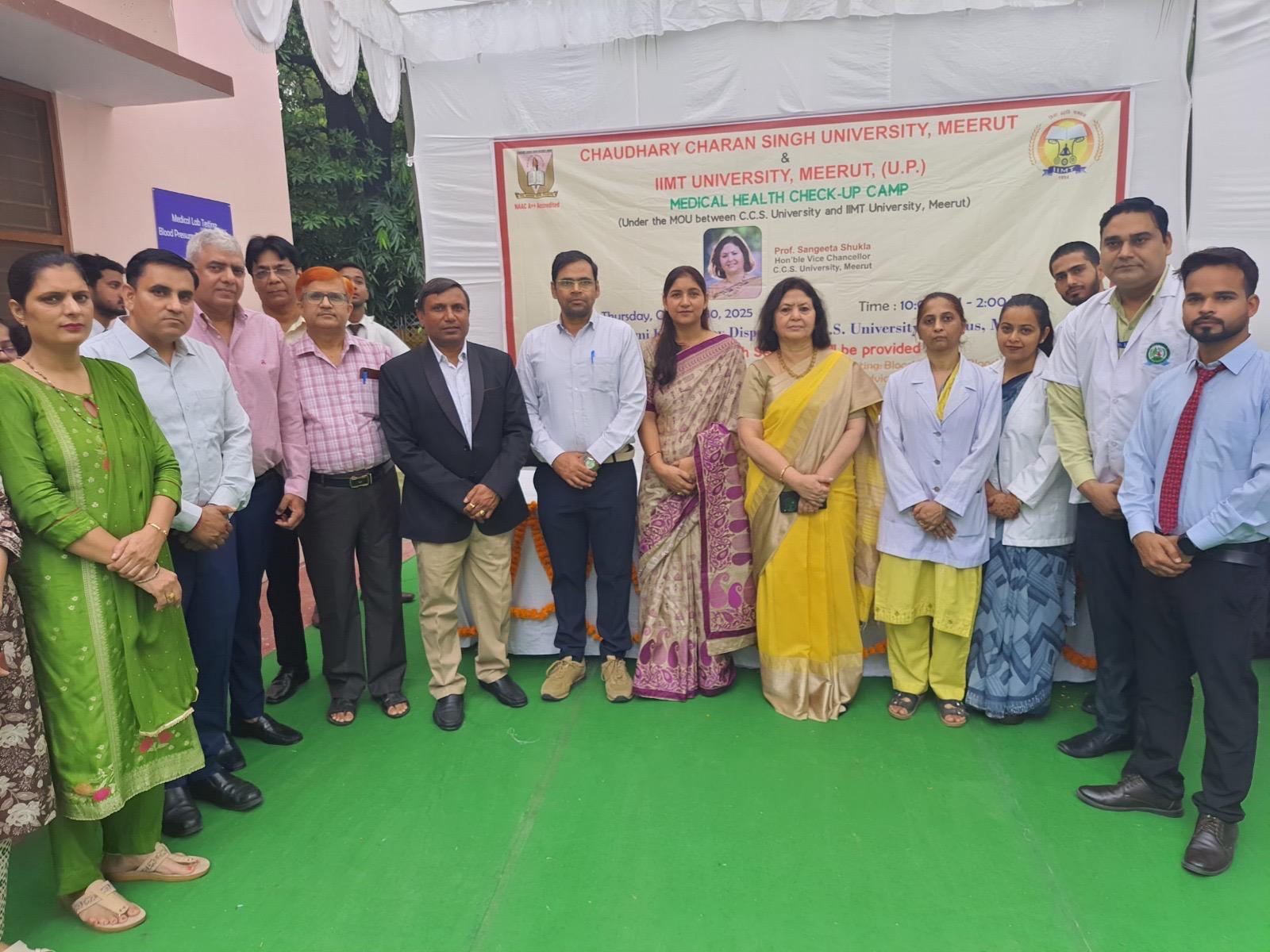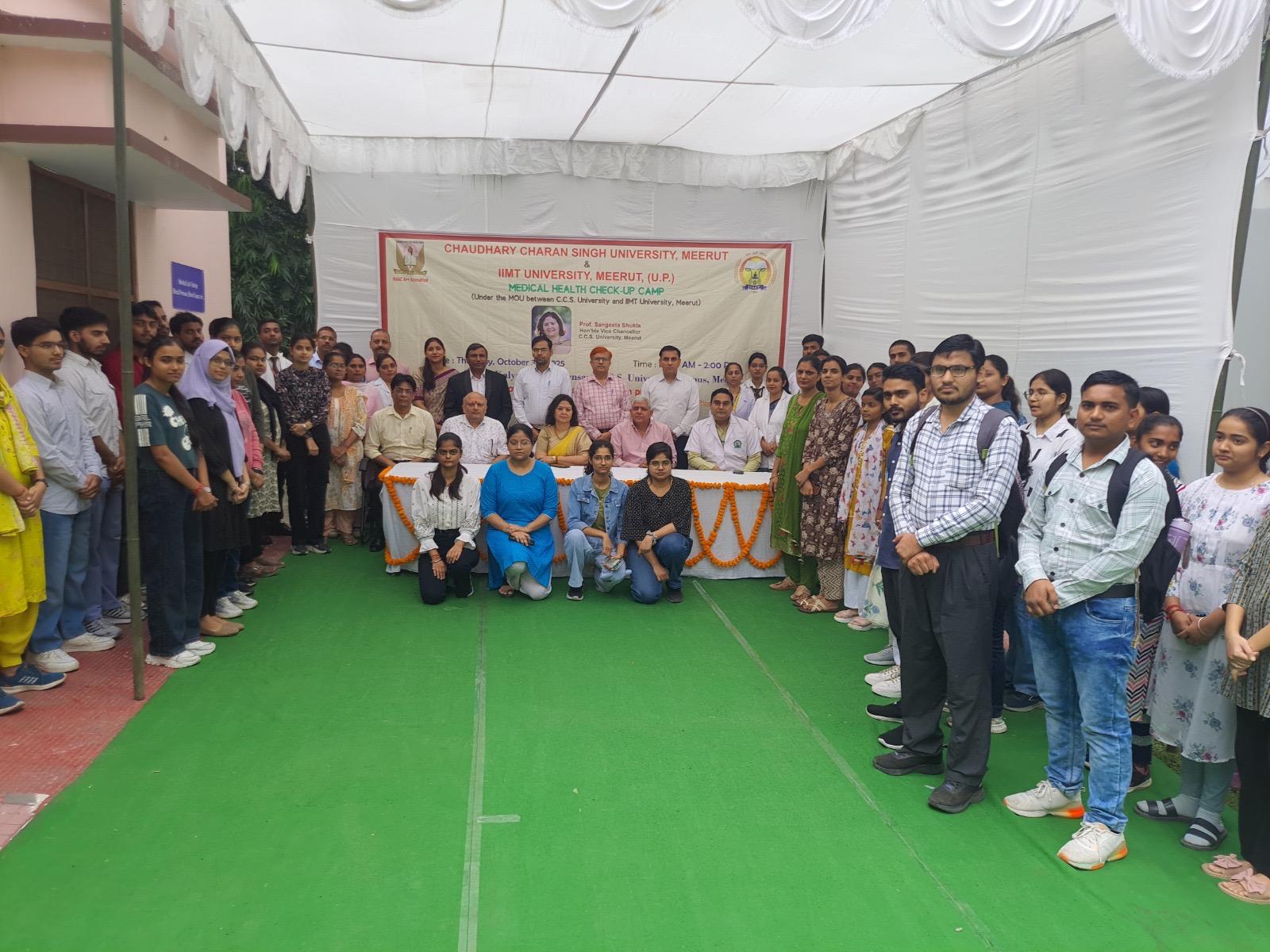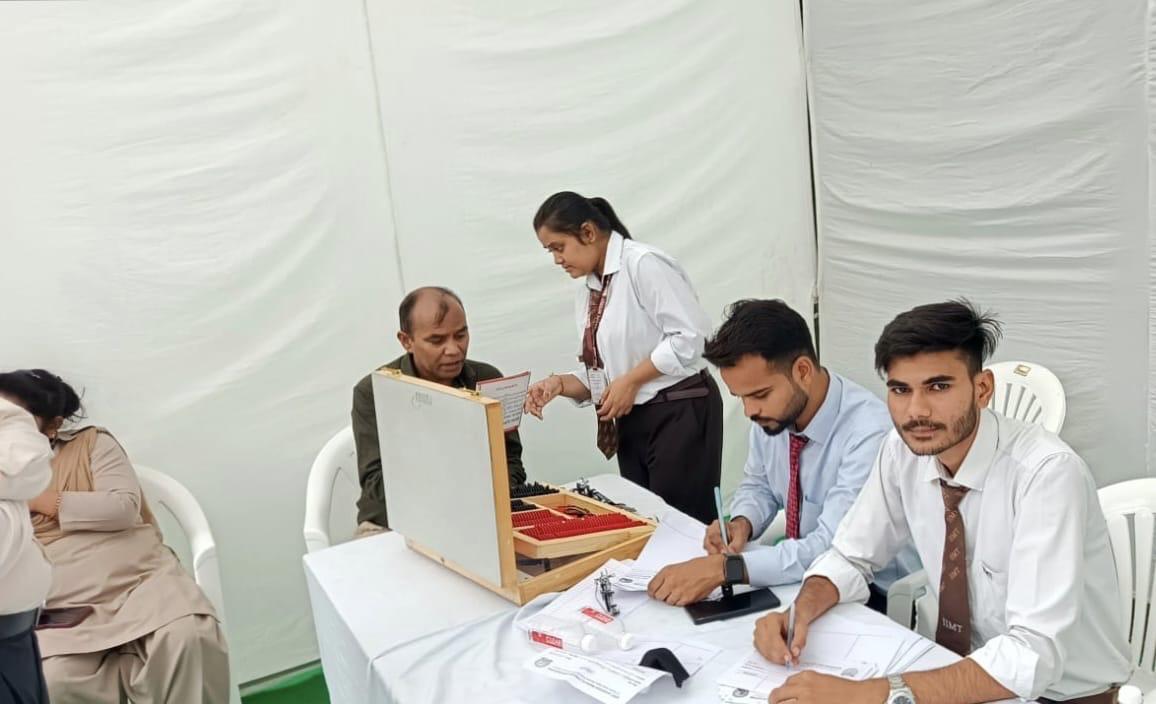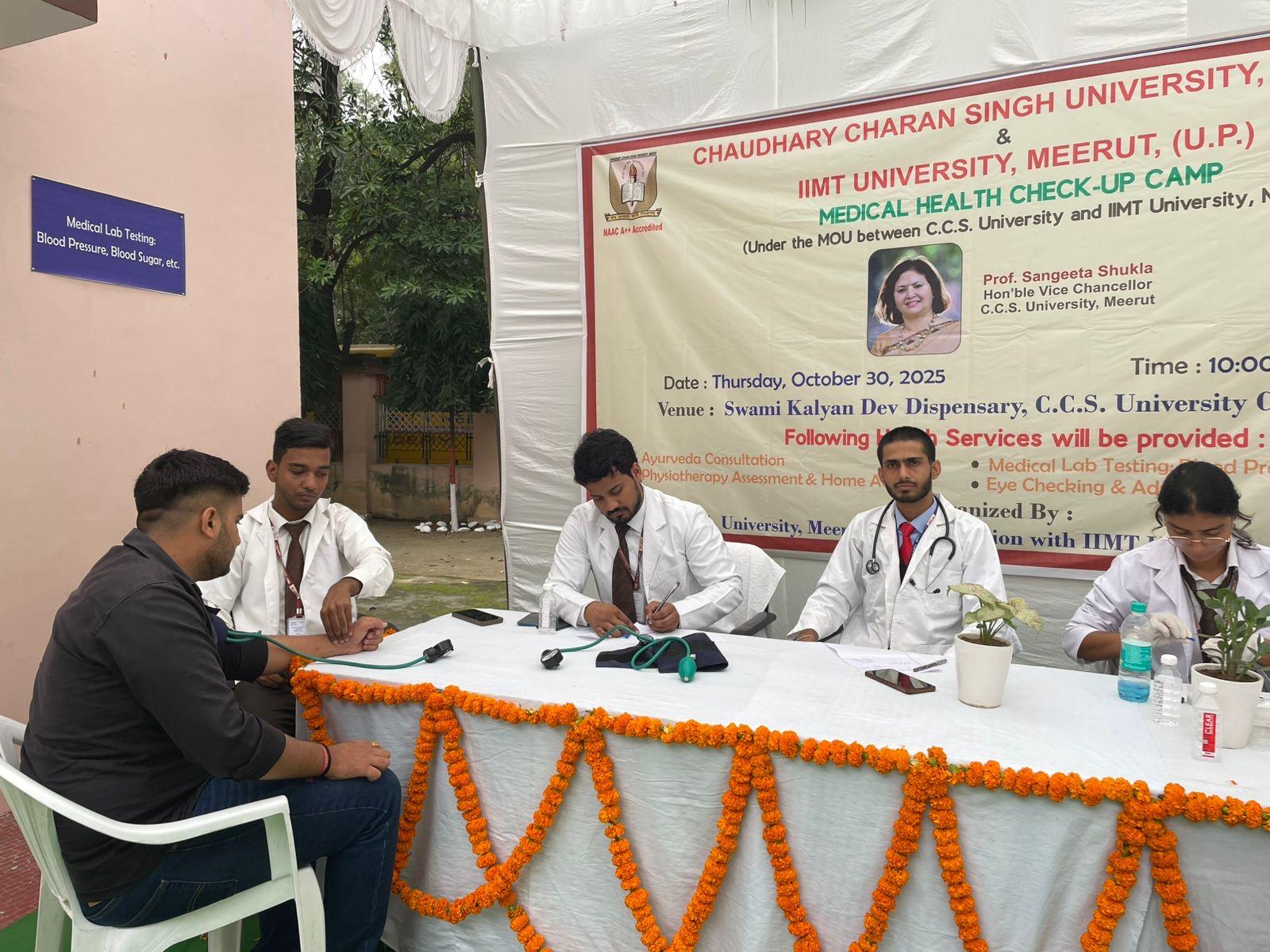IIMT University Organizes Free Health Camp at CCS University Meerut | Promoting Community Health & Awareness
IIMT University Organizes One-Day Free Health Camp at CCS University, Meerut — Promoting Community Health & Interdisciplinary Care
We—the School of Ayurveda and Allied Health Sciences at IIMT University—organized a one-day, no-cost community health camp at CCS University with the objective of delivering free medical consultation, promoting preventive health education, and demonstrating the benefits of interdisciplinary collaboration in healthcare.




Comprehensive Community Outreach: Purpose and Scope
Our health camp was designed to provide accessible primary-level healthcare services and preventive education to students, university staff, and residents of surrounding communities. We focused on combining traditional medical systems with allied health services to ensure visitors received holistic assessments and practical guidance.
The scope of services included:
- Ayurvedic consultations by qualified faculty for lifestyle and chronic condition management.
- Physiotherapy assessments and rehabilitation advice for musculoskeletal and postural issues.
- Basic diagnostic screenings such as blood pressure, blood glucose, and hemoglobin checks.
- Optometry screenings to identify refractive errors and early ocular concerns.
- Hands-on student involvement to provide experiential learning and strengthen community ties.
Ayurvedic Consultation: Preventive and Personalized Traditional Care
Our Ayurveda team, led by Dr. Mansoor (MS, Department of Ayurveda) and Dr. Anupama (Department of Ayurveda), provided individualized assessments grounded in classical Ayurvedic principles. Consultations emphasized:
- Dosha assessment (Vata, Pitta, Kapha) to identify constitutional imbalances.
- Lifestyle and dietary counseling tailored to each patient’s needs and local resources.
- Non-pharmacological preventive advice (daily routine, seasonal adjustments, stress management).
- Safe, evidence-informed herbal recommendations where appropriate, with instructions for follow-up monitoring.
Through structured counseling sessions, we prioritized prevention and patient education—equipping attendees with actionable measures to manage common chronic complaints such as digestive disturbances, joint discomfort, and stress-related symptoms.
Physiotherapy Services: Assessment, Education, and Rehabilitation
Dr. Gunjan from the Department of Physiotherapy conducted targeted assessments for individuals presenting with back pain, neck stiffness, sports injuries, and postural deviations. The physiotherapy component included:
- Clinical screening to identify red flags and refer where necessary.
- Functional assessment for movement quality and ergonomic risk factors.
- Demonstration and teaching of corrective exercises, stretching routines, and posture correction techniques.
- Advice on workplace ergonomics and activity modification to prevent recurrence.
These interventions were geared toward restoring function, reducing pain, and empowering participants to maintain musculoskeletal health independently.
Medical Laboratory Technology: Rapid Screening & Early Detection
Under the supervision of Mr. Harsh (Department of Medical Laboratory Technology), we provided on-site basic health screenings that served as an early-detection mechanism for lifestyle diseases. Tests performed included:
- Blood pressure measurement.
- Random and/or fasting blood glucose checks.
- Hemoglobin estimation.
Each participant received clear verbal counseling about their results and guidance on next steps—whether lifestyle modification, follow-up with primary care, or referral to specialists for further evaluation. Early detection through these simple tests can substantially reduce the burden of chronic disease through timely intervention.
Optometry & Vision Screening: Protecting Sight in the Digital Age
Vision health was addressed by Mr. Sharik (Department of Optometry) and his team, who conducted visual acuity testing and basic eye health checks. Services included:
- Screening for refractive errors and providing prescriptions where required.
- Preliminary detection of ocular signs that warrant ophthalmology referral (e.g., suspicious optic nerve signs, early cataract indicators).
- Advice on digital eye strain mitigation—regular breaks, screen ergonomics, and lighting recommendations.
Given the increasing screen time among students and professionals, these screenings were particularly relevant and well received.
Student Volunteers: Practical Training & Community Service
Students from across the School of Ayurveda and Allied Health Sciences volunteered throughout the day. Their roles included patient registration, assisting clinicians during screenings, health education, and logistical support. This practical involvement delivered dual benefits:
- Educational value: Students gained real-world exposure to patient interaction, clinical procedures, and multidisciplinary teamwork.
- Community impact: Their participation enabled higher throughput, better patient follow-up, and a compassionate service environment.
Community Response and Institutional Collaboration
The health camp received warm appreciation from CCS University authorities and numerous community members. Attendees expressed gratitude for the free, high-quality services and the practical guidance they received. The collaboration strengthened inter-university relations and set a model for academic institutions to partner on public health outreach.
Key outcomes: high beneficiary turnout, improved community awareness of preventive practices, strengthened academic collaboration, and enhanced student learning through service.
Why Interdisciplinary Health Camps Matter
We firmly believe interdisciplinary outreach is essential for modern community health. By bringing together Ayurveda, physiotherapy, optometry, and laboratory sciences, we created an integrated care model that:
- Addresses both preventive and curative needs.
- Bridges traditional knowledge and evidence-based allied health practices.
- Provides cost-effective screening and referral pathways at the community level.
- Builds trust between academic healthcare providers and the public.
This approach improves health literacy and fosters long-term behavioral change—two pillars of sustainable public health.
Looking Ahead: Sustaining Impact and Scaling Outreach
Following the success of this one-day camp, we are committed to sustaining and scaling similar outreach initiatives. Planned actions include:
- Periodic health camps across urban and rural locations.
- Structured follow-up mechanisms for high-risk individuals identified during screenings.
- Expanded student training modules focusing on community health competencies.
- Strengthening partnerships with local health authorities and neighboring universities.
These measures will ensure our engagements move beyond episodic events to form continuous, measurable contributions to community health.
Contact: School of Ayurveda and Allied Health Sciences, IIMT University, Meerut. For partnership enquiries and future outreach collaborations, please reach out to our community engagement office.
30-Oct-2025
Back


